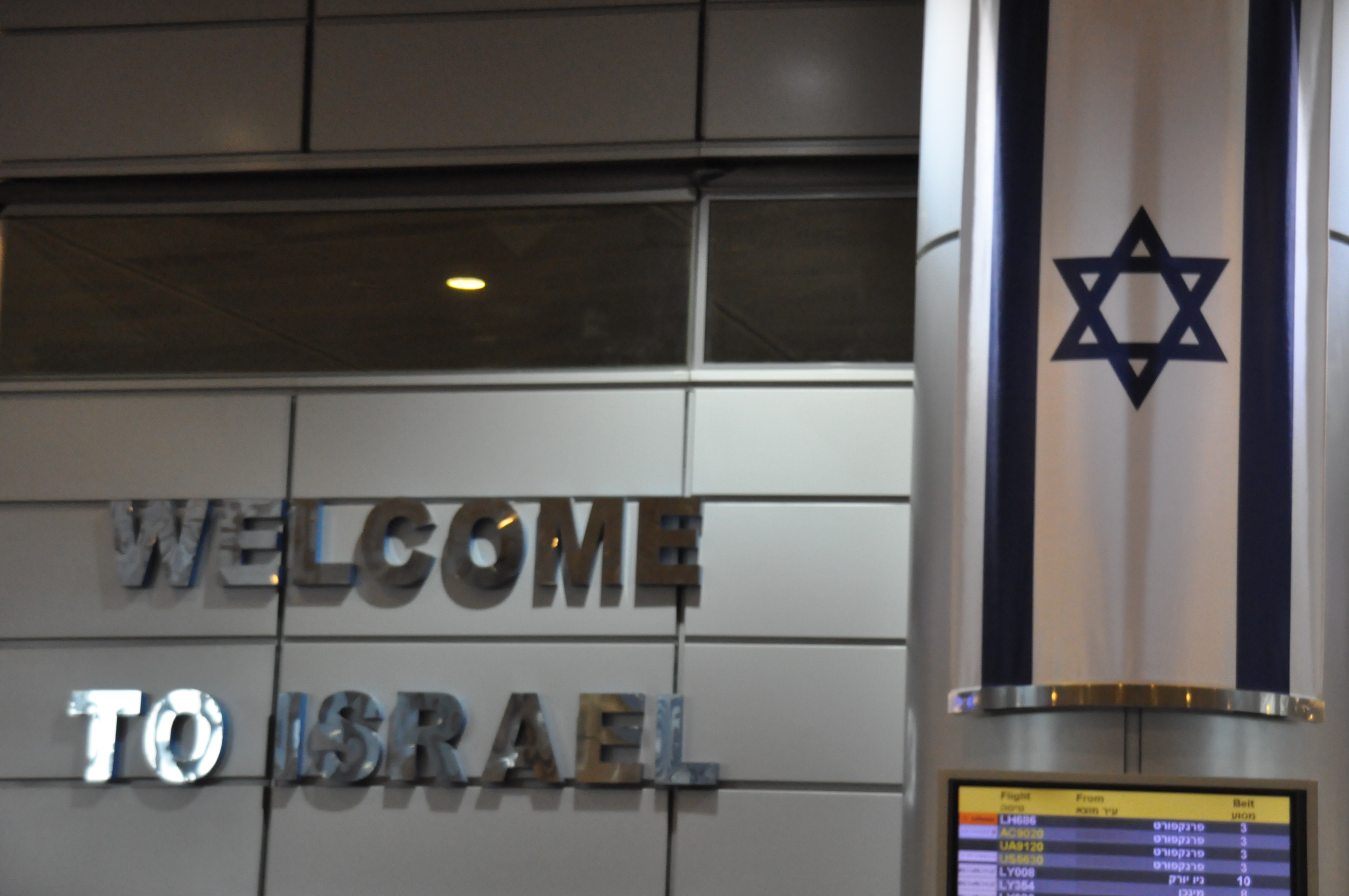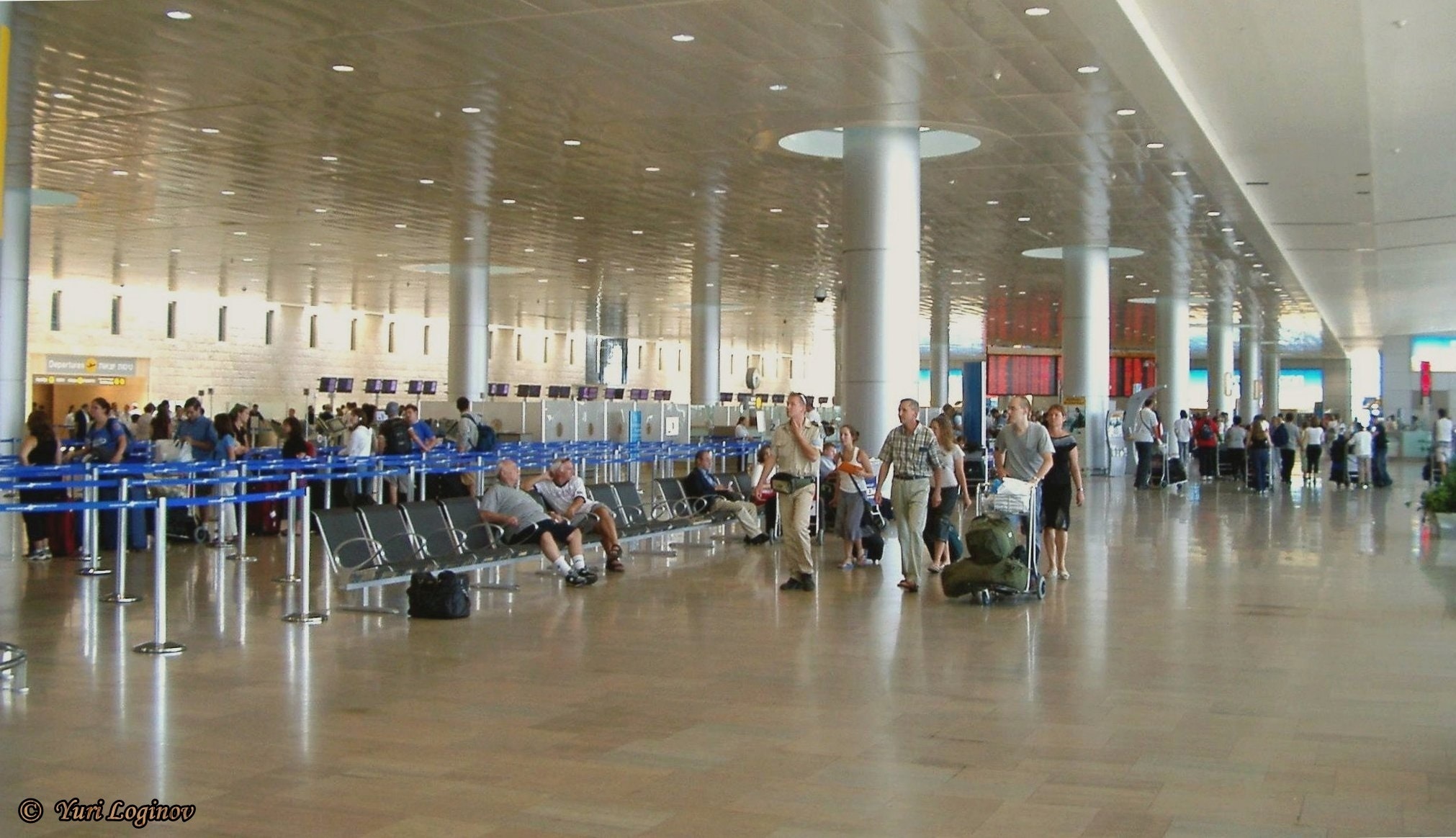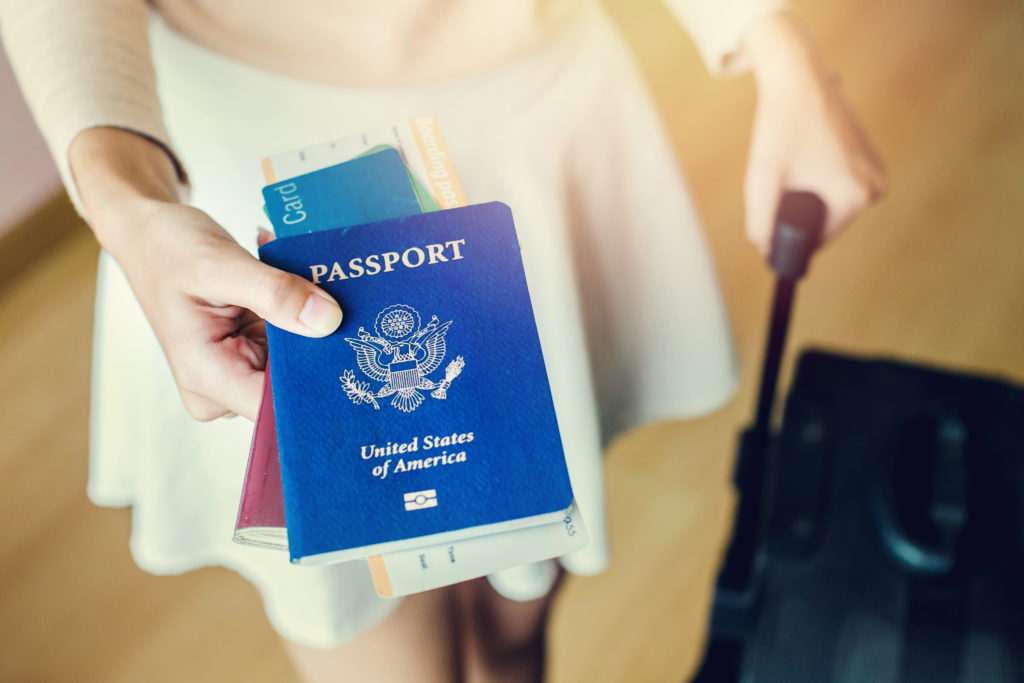New information as of Summer 2019.
Israel takes airport security seriously, perhaps more so than any place on earth. The nation is constantly dealing with multiple security threats and is surrounded by neighbors that don’t really count as friends.
However, Israel is a great place to travel, and an easy destination for U.S. and Canadian citizens — and an increasingly attractive option for using points and miles redemptions. One should be prepared to spend some time at Ben Gurion Airport security though. There’s a clear reason that this airport is considered to be one of the safest in the world.
For those unaccustomed to flying out of Ben Guiron, we recommend you use a three hour buffer before any departing flight. Fortunately there are some decent lounges to spend time if you make it through the process quickly.
Of course, there are lots of ways to fly to Israel using travel rewards. You can even use miles and points to fly on Israel’s flagship carrier El Al.
Breaking It Down:
Arriving At Ben Gurion Airport

A vast majority of tourists go through border control in a very short time. Even if the lines are long, there are usually plenty of agents working and lines average 20-25 minutes, a blink compared to a bad day at Newark Liberty or London Heathrow.
Expect Questions As Part Of Ben Gurion Airport Security
Be prepared to answer questions about your previous trips, regardless of how recent they are, your travel patterns and your plans in Israel. What could trigger such treatment? Most likely passport stamps from countries that aren’t friendly with Israel, such as Iran, Lebanon and some other Arab nations.
If you are among the unlucky few who get pulled aside for questioning, there will typically be a wait for your interview.
In short, if you’ve visited Muslim countries before entering Israel, you might be asked additional questions on arrival and departure. Be prepared for repetitive, but polite, questioning by Ben Gurion security personnel. It’s important to be patient and to take the questioning in stride.
Tip: Bring paper copies of your hotel reservations, names and phone numbers of your friends and colleagues. These might come in handy if you are stopped for additional security screening.
Israel no longer gives out passport stamps on arrival – good news for travelers going to other countries in the Middle East for which this might previously have been a problem.
What To Expect When Leaving Israel
Don’t be surprised to see a security checkpoint at the highway entrance to the airport. All vehicles entering the airport have to go through this inspection, and it usually takes just a couple of minutes. The cars are waived through pretty fast, although if there are a lot of flights departing at that time of day (or night), it can take up to 15-20 minutes to get through.
Ben Gurion is a busy airport and there are flights departing 24/7 (the airport is only closed on Yom Kippur). There really isn’t a time when the airport isn’t busy. If you have a late evening or even middle of the night departure, that’s when the airport might be at its busiest, so plan accordingly.
Checkpoint One: The Interview

Ben Gurion Airport, Israel. Line to the first screening. Image Courtesy of Yuri Loginov from Pexels
You will encounter the first check for Ben Gurion airport security before you get to the check in counter. There are several different security areas, go to the one that services your airline. The agents talk to each person for at least a couple of minutes. They will ask standard questions about who packed your bag, what you did and where you traveled during your visit.
Everyone – even Israeli citizens – is interviewed as part of this security procedure, so don’t be surprised by what sometimes might seem like random and repetitive questions. If you’ve gone to Jordan or Egypt from Israel, you will most likely have to answer some additional questions. Time spent here is a major variable, and will depend on your answers, your itinerary and your risk assessment by the first screener. Usually, this initial screening takes just a couple of minutes, but it can vary.
After your initial conversation, the screener will put a white bar-code sticker on the back of your passport and you can continue to the check in counter. Sometimes they will ask you to open your bag and will search it manually or will send it through an x-ray machine. Don’t remove the sticker, you’ll definitely need it later.
Checkpoint Two: X-Ray and Explosives Screening

ben gurion security
There is now a set of automatic security gates where you will need to scan the white sticker that the first screener put on the back of your passport. Once you pass through the automated gates, there’s another security screening -– the standard metal detector/x-ray line.
If you were singled out for additional screening they will manually check your carry-on and will probably swab for explosives. This is also a standard procedure, nothing to be worried about, just make sure you have ample time before your flight.
No need to remove shoes, and you can bring liquids through security. Water bottles, wine, regular-seized bottles of shampoo, all are fine. I was once asked to take off my watch, though. Next time, I’ll put all metal in the carry on ahead of time.
Passport control is right past security. There are no more agents, they’ve been replaced by another set of automated gates. No more lines! Now passengers just scan the passport’s picture page at an automated gate.
Final Thoughts
Ben Gurion airport security procedures focus more on people than luggage. If you are pulled aside for additional screening on arrival, just stay patient and polite. There’s no way to tell how long this additional screening could last, so patience is paramount.
On departure, my best advice is to leave yourself plenty of time before your flight. Again, in Tel Aviv, we recommend arriving three hours early if you’re unfamiliar with the airport and its unusual procedures.
If you are planning a trip to Israel and other countries in the Middle East or Muslim countries in Asia, such as Indonesia or Malaysia, it might be a good idea to go to Israel first, before you get all of these other stamps in your passport.
If you get through security fast, that’s great! There are lots of shops and cafes where you can pass the time before your flight. If you are flying in business class just relax in the lounge.
If you have a Priority Pass membership, there are two lounges you can use and a recently added bar. I’ve visited Schmoozy bar and the Dan lounges in Tel Aviv on a recent trip, and the food was pretty good. I have the Priority Pass membership through my American Express Business Platinum card, and I am said to lose the restaurant benefit. At least I could still use my Amex to access the Dan lounges for business class passengers.
Related: Amex Cards With Priority Pass No Longer Can Access Airport Restaurants
If you’re not traveling with a card that includes Priority Pass, you absolutely should. The Chase Sapphire Reserve is a good place to start. The Platinum Card from American Express or the American Express Business Platinum Card have enhanced lounge access above and beyond the Priority Pass options.
The responses below are not provided or commissioned by the bank advertiser. Responses have not been reviewed, approved or otherwise endorsed by the bank advertiser. It is not the bank advertiser's responsibility to ensure all posts and/or questions are answered.
18 comments
Great article, brings back memories. We did a Holy Land tour there as part of a large church group in October 2013, was a fantastic trip. One observation is that those who are traveling single (vs. as a couple or with family) should expect to be questioned a bit more/longer.
might want to also explain that luggage is sent through security screening before checkin (after first security checkpoint)
The “There is another security screening after passport control…” is actually before passport control.
I once visited for 3 days (burning miles) and was deemed a risk. The person didn’t understand why the visit was for so short. She asked why I didn’t come at a different time when I had more time to visit Israel. I’m not sure if I was given the full treatment but did have to loosen/lift up much of my clothes. It took a long time as they look carefully in my luggage. They stopped around the time I made some suggestions on sneaky places to look (the insides of the shoe come out so you can look there if you want…..they didn’t…reverse psychology???)
I didn’t personally find security any more intense than traveling in the United States. The “interview” upon leaving was a bit different, but I didn’t find it to be too much of a big deal, and I actually found the X-Ray of people and baggage to be somewhat less taxing than in the US because it was focused on real stuff rather than the “Security Theater” that is so much a part of the US experience. Of course, if anybody has reason to be suspicious of you, your mileage may be different, but I don’t think that most people need to think much about it.
I agree with you, it’s far less about “theater” and going through the motions and more about observing human behavior. It just might take a while, especially during peak times.
As someone that went through TLV departure security yesterday this is a lot about nothing. A few more people checking your passport but really less invasive than many US airports. Also the lounges at TLV are fairly average, noisy, full of kids, dirty, poorly stocked and usually crowded even in the middle of the night. Maybe a blog post about airport security for TLV inbound flights from places like Turkey would more interesting. Last week I went through 9 security checks at AYT for a TLV bound flight.
I have experienced Israeli security many times, both ex-TLV and boarding in FRA. My take is that they are not monsters nor bad people. They need to be sure that by letting you through they as individuals will not be making a drastic mistake that can lead to an incident that can be blamed on them. Once they understand that a passenger does not represent a danger they gladly focus on the next on line. There are no feelings or intent to annoy.
Then again, our nanny flew ex TLV a few days prior to us and lied to security about many things, for harmless reasons. Security decided to inspect all her large electronic items and almost caused her to miss her flight. Once she was cleared they told her that misleading and lying to security raises their concern level.
Thanks for sharing your experience!
The point about bringing liquids through is unfortunately false. Quite the opposite, they are actually stricter. Unlike America, where you can bring any liquid purchased at the airport after security on the plane, in Israel (at least on flights to the US), you cannot.
David, I’ve flown from TLV many many times and I could always bring a big bottle of water and even yogurt containers through security. U.S. based carriers can have their own rules about liquids on a plane, but these aren’t TLV airport rules. Also I’ve seen people bring duty free bags on board as well.
I was Just there in June 2019 (traveled back to Newark, NJ from Tel Aviv) and they were EXTREMELY strict with liquids going onto the plane / different then what you noted . After all the security checks you mentioned, i purchased a few water bottles and food as i always to before boarding the plane not knowing we would all be checked again and have to throw our brand new water bottles out. This was a UNITED flight.
This is airline specific requirement, not airports. I’ve flown on a few European carriers out of TLV over the years and they don’t care and never check the carry ons.
If we (me, wife and 11 year old girl) land at TLV on Saturday Feb 1 at 8:55pm, what time could we reasonably expect to be on the high speed train to Jerusalem? They have trains leaving there at about 10pm. Will I definitely be able to make that train? Do I need to reserve the train now or at the station on that day? How long does it usually take on arrival for this? How much faster if I pay the $150 UDS for expedited arrival VIP service? Thanks a ton!
One hour might not be enough but not because of security, but rather getting your bags on time. Right now that the passport control process is largely automated, the lines have greatly diminished but it might depend on how many flights have arrived at the same time. I’ve waited for my bags for 30-40 mins after getting through the passport control. I’ve never taken the train, but I don’t think you need to reserve it. I wouldn’t pay for expedited VIP service because I don’t think they can get your bags any faster. There’s lots of good signage in English everywhere and the airport is easy to navigate.
Hello,
I will share my experience from my trip about the procedure in the Airport.
The security officer who interviewed me was okay, but I felt a little uncomfortable, like they were closely watching everything I was doing all the time.
I’m positive they have devices that can detect pressure or lies. In my case, I answered all their questions in detail and was allowed to proceed without any trouble. Israel was fun, especially Eilat.
As was mentioned, the Israeli security works based on the idea that people are the problem and not what’s in their bag. Those interviewers are trained to get you to mess up if you are lying. They are trained in body language among other things. The carry on rules are easier. No full body scan. No taking off your shoes. Laptops have to come out. Some airlines do check your carry on when boarding for liquids. I believe that this is really just to put people at ease who don’t trust the interview process.
[…] Despite reportedly having the most stringent security for air travel anywhere, in our experience, the airport was a smooth, easy process. Entry was as easy as scanning our passports and a brief conversation with an immigration officer. Upon departure, it was similar (plus a scan of our luggage). There’s a more through description of it HERE. […]